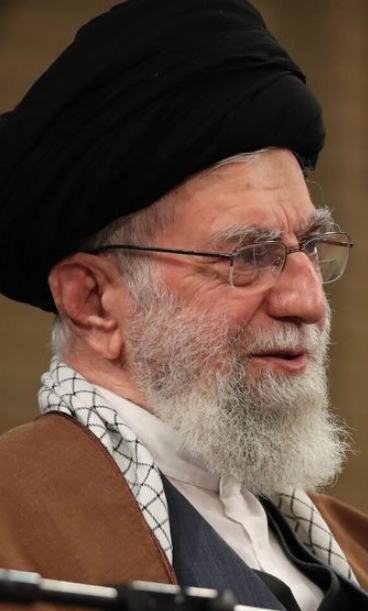May 12, 2023

By Warren L. Nelson
Supreme Leader Ali Khamenehi has ordered the Raisi Administration to drastically revise state economic policies to make the Islamic Republic a free enterprise country and end the control the state increasingly has exercised over the economy.
The Islamic Republic has always given lip service to free enterprise as Islam has always endorsed it. But, in reality, the regime runs a command economy that few other countries have equaled since the end of the Soviet Union in 1991. In fact, one commentator told the Iran Times that Iran is run as more of a communist state than Hungary was when it was officially a communist state.
Khamenehi’s commands, in a Now Ruz address at the Shrine of Imam Reza in Mashhad, painted a picture of a dramatically different Islamic Republic. Khamenehi didn’t give his usual vague and imprecise orders, but rather was remarkably clear and precise in the kinds of changes he wants to see.
Some, however, doubted he meant what he said. They surmised that Khamenehi was just trying to distract the country from the street protests that have been focused mainly on such things as women’s rights, corruption and regime oppression.
Others, however, said Kha-menehi had finally come to agree with economic critics who have said the economy is so badly run that it is running the country into the ground and the regime cannot survive unless it can finally make the economic engine move again.
Khamenehi signaled the need to focus on economic policies in a speech February 15. That was a typical vague and imprecise text, but was remarkable for saying that the government was putting the economy first effectively rejecting the policies of regime founder Ruhollah Khomeini, who said economics or the price of watermelons, as Khomeini phrased it could never be the focus of a true Islamic state.
Khamenehi said he wanted to shed light on the weaknesses that require change, saying, “The issue of the economy and economic policies are the main weaknesses, many of which are the legacy of those before the Revolution while some are also related to the era following the revolution.”
He deemed the most critical weakness of the nation’s econ-omy to be the government’s control over it, dating from the 1980s, when Mir-Hussein Musavi was prime minister. “As a result of this extremism, the people have abstained from great wealth-creating economic activities, which has caused the problems we witness in the country today.”
Khamenehi said the Constitution sought to leave economic activities to the people and emphasized, “The important sectors of the economy and production must be in the hands of the people. As I have said many times, state and quasi-state enterprises and companies, which some refer to by the undesirable term of khosulati [a combination of two Persian words, khosusi, or private, and dolati, or governmental], must not compete with private enterprise.”
He called the failure to achieve economic justice by leaving the economy to the government a sign of the errant nature of this policy, emphasizing, “The government must lessen its interference in the economy and merely supervise affairs. Of course, I have advised several cabinet administrations to do so. Still, it was either not handed over, or it was handed over incorrectly, which resulted in the loss of the people’s support.”
Khamenehi mentioned that another of the flaws of the country’s economy was its dependence on crude oil and said, “We must sever the cord between the economy and the export of crude oil and focus on non-oil activities to earn more; fortunately, positive measures have been taken in this field, according to reports.”
He also referred to the economy’s dependency on the US dollar as another weakness, adding, “Some nations sanctioned by the West are in a better position after severing their dependency on the US dollar and working in local currency, and we must do the same.” He didn’t name any countries he said had severed ties with the dollar and done better.
He mentioned the nation’s weak economic growth in the last decade as another weakness, stating, “During some years of the 2010s, economic growth was below 1 percent. And during the tenure of the current government, too, the rate of economic growth has been quite low. To improve the country’s economy, we require rapid and continuous economic growth, the prerequisite of which is an increase in production with the help and guidance of the people.”
Meaningful privatization would require such a drastic overhaul of the Iranian economy that it would likely take many years to complete and would cause many economic disruptions along the way. Khamenehi declined to take any such reform measures when President Hassan Rohani fervently lobbied for them.
